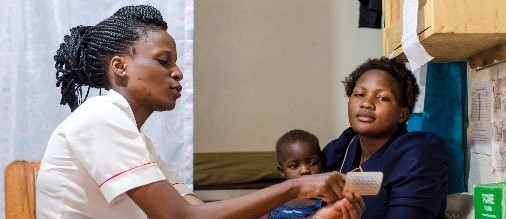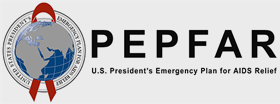
Access to a reliable and continuous supply of voluntary family planning and reproductive health (FP/RH) products is an essential part of health care that empowers women with choice and enables communities to thrive. In Uganda, since 2012, FP/RH products procured by partners like USAID, UNFPA and GFATM have been stored and distributed by the Uganda Health Marketing Group (UHMG). This includes a range of modern contraceptive methods like oral, injectable, and implantable contraceptives and male condoms. However, in June 2018, this arrangement changed, and as per USAID guidance, storage and distribution responsibilities switched abruptly to the Joint Medical Store (JMS) and all commodities transferred within four weeks.
To ensure a smooth transition and limited disruption, the USAID Global Health Supply Chain Program-Procurement and Supply Management (GHSC-PSM) project took deliberate steps to have stakeholders (PSM, UHMG, JMS, MOH) agree on a common implementation plan. The main components of the plan were:
- Clear procedures and timelines for collection and accounting for commodities to be transferred to JMS
- A communication plan to service delivery points and programs about JMS as the new source of FP products
- An orientation program for JMS staff who were handling FP commodities for the first time
- Immediate delivery of FP commodities to service delivery points that had submitted orders to UHMG as well as providing service delivery points with updated order report forms in order to get stock status information from health facilities
As a result, 20 million units of FP/RH products procured by GHSC-PSM were transferred to JMS and distribution to service delivery points began as scheduled in July 2018. Service delivery points continued to serve their clients without disruption, and by end of December 2018 JMS had distributed commodities worth nearly $214,000 — equivalent to 1,740,225 couple years of protection (CYP) for women and families. By the end of July 2019, over 64 million units of FP commodities had been distributed — worth 3,704,219 CYP.
In developing countries, an estimated 214 million women of reproductive age who want to avoid pregnancy are not using a modern contraceptive method (WHO, 2018). In Uganda, 68 percent of married women want to either space their next birth, or do not want any more children. Also, 19 percent of all women have an unmet need for family planning (Uganda Demographic and Health Survey, 2016).
GHSC-PSM will continue to work with JMS to ensure the secure, reliable supply of FP/RH products. Ongoing and future activities include operationalizing the Ministry of Health’s redistribution guidelines, supporting service delivery points to build capacity in determining different contraceptive method mixes. GHSC-PSM will also support service delivery points through training in forecasting and planning so they will have the skills necessary to independently maintain a resilient FP/RH supply chain in the future.


